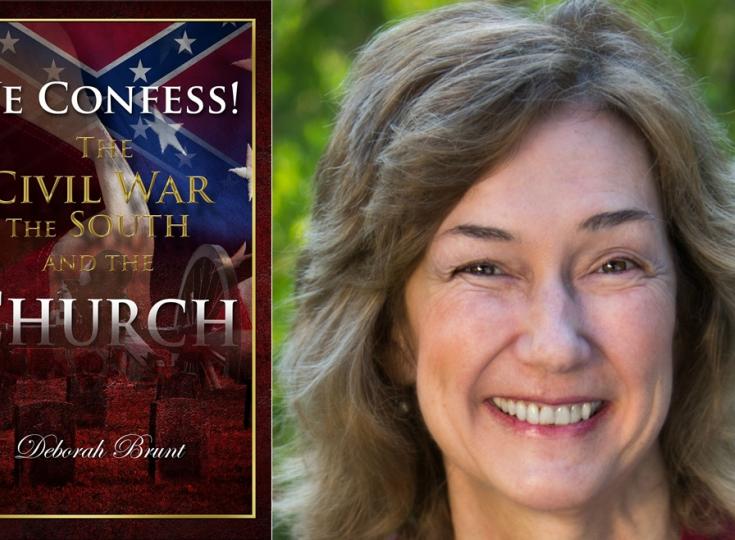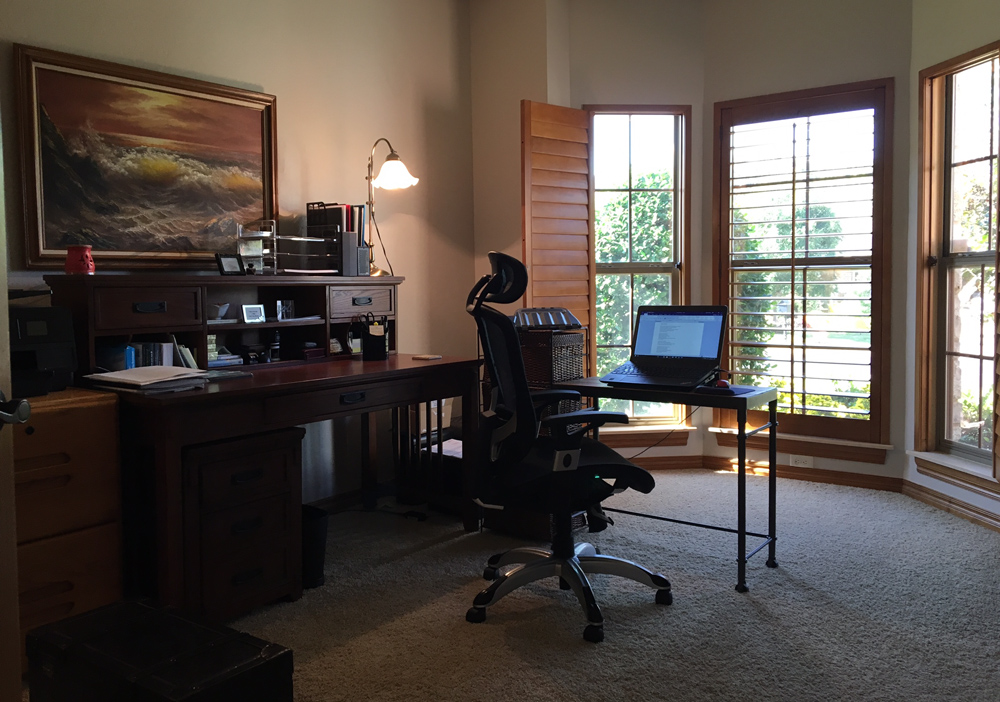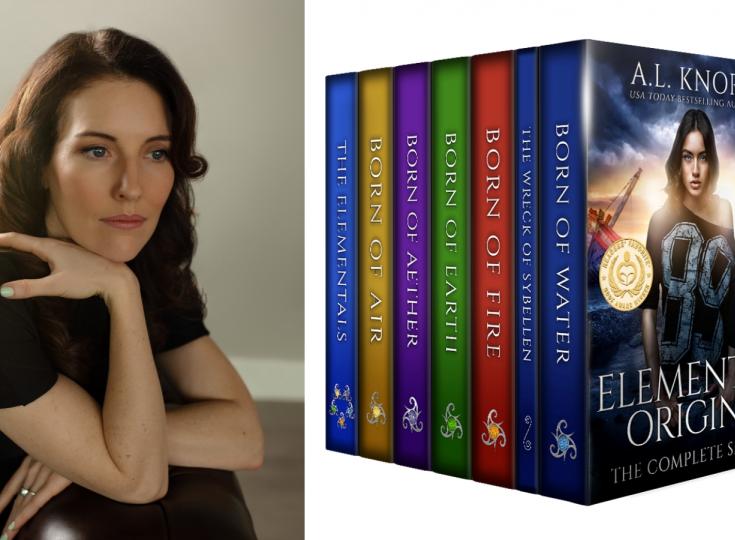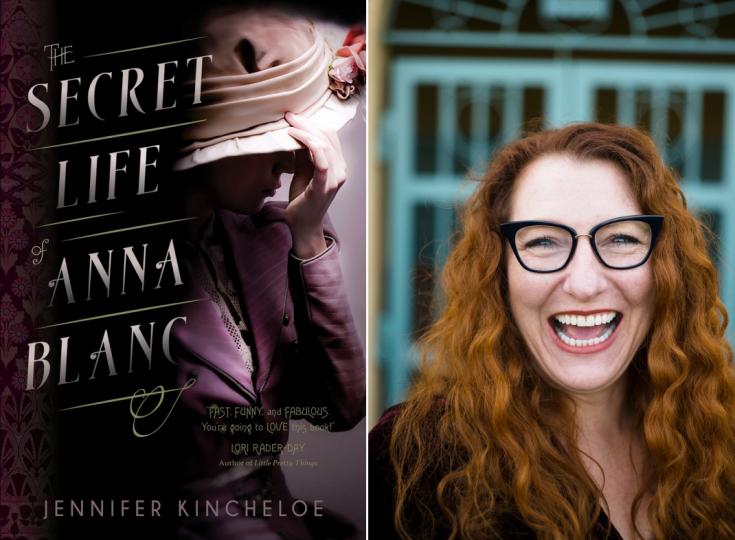Deborah Brunt - Recognizing Mistakes From the Past

Deborah Brunt grew up with a profound awareness of the taboo subjects in her church culture. She worked inside the Southern Baptist denominational structure for seven years and We Confess is her attempt to identify and own the ungodly attitudes and behaviors that her church culture adopted in the years after the Second Great Awakening. As our Author of the Day, Brunt talks about her book and reveals why she feels a confession is necessary.
Please give me a short introduction to what We Confess is about.
I’m a white Christian from the Deep South. When I would tell people like me that I was writing a book called, We Confess! The Civil War, the South, and the Church, they would typically get very quiet. Then, if they didn’t change the subject altogether, they would ask, “Why bring that up? Isn’t that all behind us?” As recent events make clear (and most people other than us already knew): It’s not all behind us. But even when people like me acknowledge current racial tensions and social issues, we tend to believe “they” are to blame and “they” just need to get over it.
We Confess calls the white church culture rooted in the Bible Belt to see what we do not want to see but desperately need to see: ways we’ve deeply hurt whole groups of people, sabotaged ourselves and misrepresented God. We Confess challenges the white church to face the shame that generations before us did not face, and to make different choices that bring healing, reconciliation and life.
What inspired you to write We Confess?
I grew up with a profound awareness of the taboo subjects in my church culture. Never would I have dreamed I’d write a book like this, until I worked inside the Southern Baptist denominational structure for seven years. There, I experienced very distressing things that left me asking, “What was that?” Researching the history of the SBC, I found the denomination had been founded to defend slavery. What’s more, I began to see how we are still reenacting attitudes and behaviors that, for a century-and-a-half, have caused division and destruction.
When I personally began changing because of what I was learning, I wanted other people like me to experience the difference too. Also, I wanted to say to people not like me: “Much that you’ve seen in me and my church culture badly misrepresents Jesus Christ.”
Why, would you say, does the U.S. still suffer from an unresolved past?
That’s a big question! Let me focus on some things I believe we in the white evangelical church need to see.
Twenty-five years after the Civil War, the editor of the Alabama Baptist newspaper wrote, “The white people of the South mean to rule, and they will rule” (Alabama Baptist, Nov. 28, 1889). Few white evangelicals in the US today would say such a thing. Most would insist that only extremists hold such a view. Yet, by the choices we make, we as a culture are still conveying this attitude.
In the Old South, greed and pride linked with a determination to control, to produce an “us” vs. “them” system, marked by oppression, violence and fear. Dissent was not permitted. Fear was used to control people, yet those with the most power were often the most afraid. Occasionally, as feared, violent slave uprisings happened. But ongoing violence was hidden in plain sight, as the privileged used their power to abuse and kill others – including one another – in ways often sanctioned or overlooked by the law.
When a culture sees itself as Christian, yet embraces all the above, something else comes into play: profound self-deception. Coming off the Second Great Awakening, our ancestors embraced Christ but would not give up the things in their culture that defied Christ. Over time, their hearts became divided to the point of spiritual schizophrenia, and they became blinded to their wrongs.
No generation of my church culture, from then till now, has owned what I just described. So by default, in a host of ways, in our race and gender relations, in our families and in the church, we’re stuck playing out similar scenarios – and vehemently asserting that we’re not.
In which way is this book a confession?
We Confess is my attempt to identify and own the ungodly attitudes and behaviors that my church culture adopted in the years after the Second Great Awakening and that still bind us today. We Confess is my personal admission of the ways I’ve participated in those wrongs. And it’s an invitation to others to face and to say what the generations before us did not.
How much research did this book require from you and what has been the most interesting aspect of this research?
I spent five years preparing to write We Confess. As much as possible, I wanted to find primary documents, written by people who lived in the time leading up to, during and after the Civil War. Happily, the web has a wealth of such materials. Early on, I found the bulk of the answers to my questions about the white church culture of the day. After that, I kept finding examples and confirmations that the attitudes I’d uncovered were not just held by a few people here and there, but were touted by church leaders early in the century and, over time, became pervasive and entrenched.
I wasn’t at all prepared for what my research revealed about my church culture, and I wasn’t prepared for the emotional wallop I felt every time I discovered something new. So I would spend weeks researching deeply, then I would spend weeks grappling mentally and emotionally with what I’d learned – until I reached a place where I could jump back into the research again.
What do you hope your readers will take away from this book?
In We Confess, I wrote: “We fear confession will undo us. Actually, it will renew us, and will draw people to our Lord.” I hope my readers will recognize that embracing this message is to their good. I hope some will find courage to face what is very hard to see, to say what is painful to admit and to go where that new humility takes them. And I hope readers who’ve been hurt by my church culture (including those within it) will find encouragement from hearing, “We were wrong.”
Is there something that compels you to write? And do you find that writing helps you achieve a clarity about yourself or ideas you've been struggling with?
I think I was created to write. It’s in my DNA. So I would say that what compels me is God. And, yes, all through my adult life writing has helped me to truly see what I’m seeing and to clarify who I am.

Do you have a favorite line from the book, and can you explain what that line means to you?
Here’s one of my favorites: “If your ancestors didn’t get rid of their stuff, you inherited it!”
For me, that means the emotional stuff, the attitudes and beliefs, get passed down just as surely as physical traits or material possessions. So if we’ve never given ourselves permission to see what it is we’ve inherited, we cannot have gotten rid of it, and it’s not “all in the past.”
What are you working on right now?
In 2013, I published an e-book titled, The Esther Blessing: Grace to Reign in Life. It explores the biblical book of Esther from a perspective I haven’t seen anywhere else. For example, the four main people in Esther show us the dramatic difference between reigning in life and the narcissist counterfeit. Now, I’m revising and updating The Esther Blessing manuscript and preparing to publish a softcover version.
Where can our readers discover more of your work or interact with you?
I have a website and blog at www.keytruths.com. Your readers are welcome to visit me there! Also, I’m on Facebook at www.facebook.com/keytruths, and my Twitter handle is @KeyTruths.








